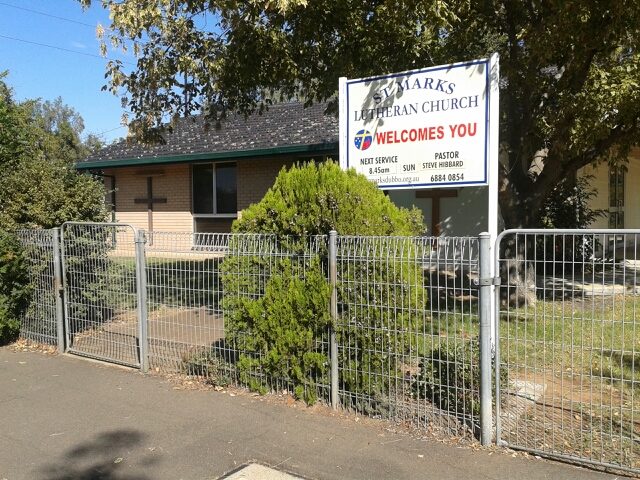Acts 2:1-21
THE HOLY SPIRIT IS CHRIST’S PROMOTION AGENT
Are you a “morning personâ€? Can you overflow with excitement at 9.00am on a Sunday morning? Certainly the first Pentecost Sunday must have been an exciting occasion for 120 followers of Jesus, when the Holy Spirit entered their lives in a way that permanently changed them and the future direction of their lives. Where the Holy Spirit takes over the management of our lives, it can no longer be “business as usualâ€. Just as wind cannot be tamed, so the Holy Spirit cannot be subdued or tamed by us. We cannot predict when and where He works.

Pentecost is no isolated event. It is the fruition of the mighty work of salvation Jesus began on Good Friday. We experience the life-changing power of the Holy Spirit as we embrace the cross of Christ, and receive the mighty blessings that flow from it. As we see from St. Peter’s Pentecost proclamation: when a believer is filled with the Spirit of God, he or she becomes a passionate ambassador for Christ and for all the good He did for us by His cross and resurrection. To be filled with the Holy Spirit is to carry conviction when we speak about Jesus Christ. Jesus sent the Holy Spirit to His disciples. Forever afterwards, the Spirit remains stamped with Christ’s character. The Holy Spirit is clothed with the personality and nature of Jesus. We cannot therefore attribute any teaching to the Holy Spirit which doesn’t shed light on Jesus. There can be no exultant, joyous experience of the Spirit of God without a corresponding thankful appreciation of Christ’s sufferings for us and with us.
The first Pentecost Sunday is depicted as an event of international significance. St. Peter addresses an international audience with the universal language of the Gospel. The descent of the Spirit was marked by something visible in fulfilment of Jesus’ desire, “I came to bring fire to the earth and how I wish it were already on fireâ€, but although the tongues of fire were very visible above each of the 120 Christians gathered together, it was what they heard rather than what they saw that made the real impact on their multi-national audience.
What we have here is the miracle of hearing: the miracle of all those present being able to hear the good news of grace, peace and salvation through Jesus Christ, rather than a miracle of speaking in different languages. The crowd asks, “How is it that each of us hears them [that is, the apostles], speaking in our own language (Acts 2:8)?†and in verse 11: “We hear them telling in our own tongues the mighty works of Godâ€.
Certainly Pentecost involves a new gift of speech. But even more so, its newness involves a fresh capacity to hear the Spirit of God speak to and convict the consciences of those who are listening to the message about Jesus our Lord and Saviour. Unlike at the tower of Babel, different languages became no longer a threat or obstacle. The Gospel is a universal message for people of every tribe, nation and dialect. Peter and his fellow disciples are so “on fire†with enthusiasm for the wonders God has done through Christ His Son, that their audience thought they’d had a little too much to drink! Hardly likely at 9 o’clock in the morning!
In response to this accusation, Peter delivers the first Christian sermon and one of the most influential addresses ever given, one that radically changed three thousand lives that day. Inspired by the Holy Spirit, Peter preaches from the Holy Scriptures to show how marvellously God fulfils His gracious promises to His people. Furthermore, on the basis of the Scriptures, he delivers a Christ-centred message, as he shows his listeners how to find Christ throughout the Old Testament. Peter points out how God’s Word, rightly applied, speaks into our present situation with its transforming good news of great joy. Only the Holy Spirit could have inspired such a Christ-centred sermon that hits home and pricks the consciences of those who hear it.
The Holy Spirit can cause people of all ages, young and old alike, slaves and those who are free, to prophesy. Prophesying now takes on a new meaning. It now means much more than to foretell the future. “Those who prophesy are speaking to people to give them strength, encouragement and comfort (1 Corinthians 14:3).†One of the names given to the Holy Spirit is “Comforter†or “Encouragerâ€. We all need encouragement like the earth needs rain. Each week, things happen that we never anticipated, things that can all too easily discourage us, or else others say discouraging things to us that sap our courage and depress us. That great Encourager whom Jesus has sent to us, the Holy Spirit, sends us fellow Christians to lift up our spirits and provide us with encouragement tailor-made to our needs. Such welcome, Spirit-sent encouragement gives us the courage to face life again with hope and confidence, and continue the work our Lord has called us to do.
A prison chaplain was so discouraged by the lack of response to his work, both by prisoners and the prison administration, that one Easter Monday, he was going to resign. He went sailing to think it over on the solitude of the sea. Then the inspiration came to him. “Every day that I stay on that job is a victory. I win just by staying there.†Such inspiration is from the Spirit of Encouragement, who seeks faithfulness rather than success from us. We sow the seeds of the Gospel and leave the size and shape of the harvest to the Spirit in His good time. He’s not in a hurry like we are. The seeds we sow may lie dormant for many years before they spring into life. The Spirit of Jesus doesn’t operate according to formulas invented by human beings. There are no four fail-safe acts of Christian love that will always work and win folk for Christ.
The Spirit of the living God uses each of us according to the unique combination of gifts He has given us. Our gifts complement each other’s gifts, talents and contributions. Those of us who have no musical gift, thank God for those who enrich our worship with their musical and singing abilities. God’s Word links being filled with the Spirit with worshipping God with music and singing: “Let the Holy Spirit fill and control you. Then you will sing psalms and hymns and spiritual songs among yourselves, making music to the Lord in your hearts. And you will always give thanks for everything to God the Father in the name of our Lord Jesus Christ (Ephesians 5:18b-20).â€
The same Holy Spirit that creates faith in us also leads us to worship God, for in our Sunday services, the Holy Spirit endows us with His blessings and nourishes and nurtures the fruits of the Spirit in us. There can be no faith in God that doesn’t lead to praise, adoration and thanksgiving to God for the good gifts of Christ our Saviour and the Holy Spirit, our Comforter. “To believe in God is to worship God (Luther).â€
In conclusion, the Holy Spirit calls on each of us, on all of us, to pray for and work for the renewal of the Church. It’s too important to leave to others. Revival begins with me.
We pray:
Come, Holy Spirit, renew my faith, deepen my commitment to You, increase my love for Jesus and those He loves. Revive Your Church, O loving Spirit, beginning with me!â€
Amen.



